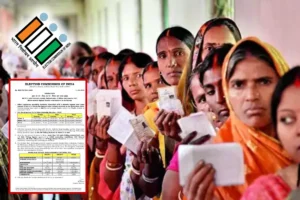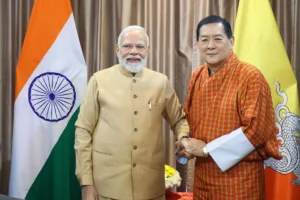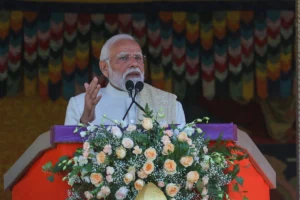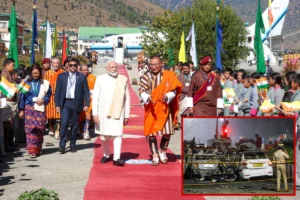
Voting for Lok Sabha elections is scheduled to start on April 19
The Sharad Pawar camp lodged a formal complaint with the Election Commission on Saturday against the ruling BJP and Shiv Sena, alleging breaches of the Representation of the People Act and the electoral code. As part of the opposition, Maha Vikas Aghadi (MVA) in Maharashtra, which includes the Shiv Sena and Congress, the NCP (Sharadchandra Pawar) expressed concern over the publication of names of individuals from other parties as star campaigners by the BJP and Shiv Sena.
“We have officially approached the Election Commission of India regarding the blatant violations committed by Shiv Sena (Eknath Shinde) and the Bharatiya Janata Party of the Representation of People Act and the Model Code of Conduct,” stated the Sharad Pawar-led party through its official platform X (formerly Twitter).
Also Read: PM Modi to Begin BJP’s Lok Sabha Election Campaign in Uttar Pradesh from Meerut Tomorrow
With Lok Sabha elections scheduled to commence on April 19, Maharashtra is poised to vote in five phases. The NCP (SP) highlighted that both Shiv Sena (Eknath Shinde) and Bharatiya Janata Party included various individuals from other political factions in their respective Star Campaigner Lists, contravening Section 77 of the Representation of People’s Act.
According to the NCP (SP), the Shiv Sena, under the leadership of Chief Minister Eknath Shinde, featured the names of prominent figures holding significant public offices, such as the Prime Minister, Union Ministers, Chief Minister, and Deputy Chief Minister. This action, the party asserted, not only violates the Representation of People Act but also breaches the Model Code of Conduct, which prohibits representatives of the ruling party at the Centre or State from utilizing their official positions for election campaigns.
Also Read: PM Modi to Begin BJP’s Lok Sabha Election Campaign in Uttar Pradesh from Meerut Tomorrow
The NCP (SP) urged the Election Commission to take stringent measures to safeguard the integrity of free and fair elections, emphasizing the importance of upholding the sanctity of the electoral process.
To read more such news, download Bharat Express news apps






















